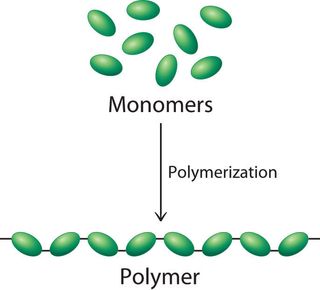Innovative Polymers: Reinventing Modern Manufacturing
Innovative Polymers: Reinventing Modern Manufacturing
Blog Article
Discovering the Varied Applications and Benefits of Polymers in Different Industries
Polymers, with their varied series of residential properties and functionalities, have come to be crucial in various sectors, each reaping special gain from their application. Polymers. From enhancing security and efficiency in the auto sector to reinventing clinical devices in the health care market, polymers play a crucial duty. Furthermore, their green nature is altering the landscape of sustainability techniques. As we explore the depths of polymers in electronic devices, we reveal innovative developments, while their structural honesty changes the realm of building and construction and facilities. The pervasive influence of polymers throughout sectors is a testament to their convenience and adaptability, forming the future of plenty of fields.
Automotive Market Applications
Polymers play an essential role in improving the efficiency and resilience of numerous elements within the vehicle market. These functional materials are thoroughly utilized in the production of different parts, ranging from interior parts to under-the-hood applications. One famous use polymers in the auto sector is in the production of light-weight elements. By replacing traditional metal parts with polymer-based alternatives, vehicles can attain better gas performance without endangering on toughness or safety and security.

Medical Care Industry Benefits
In different healthcare applications, the advantages of utilizing polymers are extensively acknowledged for their varied variety of advantageous properties. Polymers play an important role in the health care sector due to their adaptability, biocompatibility, and cost-effectiveness. Among the key advantages of polymers in healthcare is their capacity to be tailored to certain needs, such as flexibility, sturdiness, and biodegradability, making them perfect for a variety of medical applications.
Polymer-based products are thoroughly made use of in medical tools, such as catheters, implants, prosthetics, and drug delivery systems, because of their biocompatibility and capacity to simulate natural cells. These products can minimize the risk of allergic reactions or beings rejected, enhancing person safety and outcomes. Furthermore, polymers are lightweight, making them appropriate for wearable clinical devices and guaranteeing client convenience.
Moreover, polymers enable the advancement of innovative treatment methods, such as hydrogels for tissue design and nanocomposites for targeted medicine delivery. Their ease of handling and sanitation makes them important for why not try here preserving high standards of hygiene in medical care settings. In general, the diverse benefits of polymers add considerably to advancements in medical technology and individual treatment.
Environmental Advantages of Polymers

Additionally, polymers can add to power financial savings due to their light-weight nature. In markets such as transport, light-weight polymer materials can help in reducing fuel usage and greenhouse gas emissions. Furthermore, polymers can enable the growth of energy-efficient products such as insulation materials that improve power browse around this web-site conservation in buildings.
Moreover, polymers play a vital role in minimizing water contamination. For instance, the usage of polymer-based purification systems can efficiently eliminate pollutants and contaminants from wastewater, guarding water sources and environments. On the whole, the ecological benefits of polymers make them valuable properties in advertising sustainability and environmentally friendly techniques across different industries.
Polymers in Electronics and Modern Technology
Thinking about the raising demand for innovative and lasting services in modern sectors, the integration of advanced polymer technologies in the world of electronics and innovation has actually emerged as a crucial technique for driving effectiveness and efficiency. Polymers have actually changed the electronic devices industry by making it possible for the manufacturing of lighter, extra adaptable, and durable electronic gadgets. From mobile phones to clinical tools, polymers play a crucial duty in enhancing item layout and performance.
One significant benefit of polymers in electronics is their shielding homes, which assist shield fragile digital components from ecological aspects and electric disturbance. Furthermore, polymers are vital in the advancement of flexible display screens, wearable innovation, and printed electronic devices, providing countless possibilities for creating wise and interconnected tools.
Additionally, making use of polymers in electronic packaging has resulted in innovations in miniaturization and thermal administration, enhancing the overall efficiency and dependability of electronic systems. As innovation proceeds to develop, the adaptability and versatility of polymers will most certainly drive better development in the electronic devices market, shaping the future of innovation.
Duty of Polymers in Building and Facilities
Polymers provide many advantages in the building market due to their adaptability, resilience, and cost-effectiveness. One crucial function of polymers in building and construction is their use in finishings and sealers, offering defense versus ecological variables such as moisture, UV radiation, and rust.
Additionally, polymers play a crucial role in sustainable construction techniques by enabling the development of energy-efficient structures. Insulating materials made from polymers help control interior temperatures, decreasing the requirement for home heating and cooling down systems and ultimately decreasing power intake. Moreover, the usage of polymer-based compounds in framework jobs such as bridges and roadways enhances their durability and reduces upkeep prices. In general, the incorporation of polymers in building and construction and framework showcases their considerable influence on modern design methods.
Final Thought
In conclusion, polymers play a vital duty in various sectors such as automotive, healthcare, environmental, electronics, and building and construction. Their versatile properties make them useful in developing cutting-edge options and items. From enhancing gas effectiveness my response in lorries to boosting clinical gadgets, polymers offer various advantages. Additionally, their effect on decreasing waste and promoting sustainability highlights their significance in modern-day applications. The widespread use of polymers shows their significant payment to advancing innovation and boosting lifestyle.
Report this page